Noise problem solution needed
Jash Nate
4 years ago
last modified: 4 years ago
Featured Answer
Comments (33)
Interior Re-Styling LLC.
4 years agoSJ McCarthy
4 years agoRelated Discussions
Problem needs a solution
Comments (2)You move them when you can get them. The owners very obviously don't want them and if they don't care if you take them, I'd be over there digging up every iris I could find. Go get them as soon as they peek up and you can identify them. Take them all, and if you don't like some of them when they bloom, give them to someone who will take care of them. It just kills me to watch a pretty garden destroyed by new owners-- or in this economy when people can't sell, their gardens get destroyed by renters. It's so sad....See MoreProblem / need solution!
Comments (5)Confederate jasmine is an evergreen vine that should survive winters where you are. It definitely follows the sleep, creep,leap law, so you would have to wait a while. It probably won't bloom well in the shadier area, but I think Mississippi has enough sun for jasmine to grow in a good bit of shade. If you can put up stout trellises, I think akebia might be evergreen for you, and it's fast to grow. Keep in mind though that akebia has been know to lift roof joists, so when I say a stout trellis, I mean stout. There is always good ole eleagnus (ugly agnes as it's also called). It grows fast, fast, fast. You would have to decide which is uglier - the eleagnus or your neighbors, and make a decision based on that. The other thing to consider is holly. Some of them make excellent screens although I don't grow them and can't tell you which ones do best in southern shade. I'm sure there must be a forum here that can tell you all about hollies. I agree with gardengal49 that camellias grow too slowly, but if you're willing to wait, they will do fine in the shade in Mississippi....See Morei need the definitive solution to end my Wisteria problem...
Comments (2)so you know from experience that Brush Master works for killing wisteria? and if so, what was your particular methodology for application?...See MoreWell water quality problems....solution needed, please help.
Comments (6)Lurker-- Thanks for the help.....i think you helped me when I got my softener a few years back...hopefully you can help me fix my mom's water.... Retested the water..... results are still the same. Low Ph, High Iron. No bacteria. Let me ask a quick question upfront: Are there any health hazards to continue using this water as is? I understand the high iron can cause staining on surfaces (it already has) and the acid can ruin copper pipes (although most of her pipes are PVC or some sort of plastic), but can it cause health problems? Also, this condition of high iron is recent. Over the summer, the water from all taps started sputtering, seemingly cause of air in the lines. The plumber/well guy came out and tried the simple, cost effective solutiuons first. 1. Compressed air in the well to clean the well screen. She has a shallow well. He did this quite a bit. The screen was dirty and we thought that solved the problem....Nope. 2. Changed the pump, retention tank. Nope. 3. Then changed all the piping from the well to the retention tank. The problem in the end was a collapsed pipe that ran from the well to the tank. Could the repeated use of the compressed air down the well (in order to clean the well screen) caused some sort of change in the water, like an influx of iron? The iron (at least to the naked eye) has decreased somewhat since the summer, although it is still there as evidenced by the water test. A couple of months ago the iron would settle out of a cup of tap water within a week....now you put a cup of tap water on the counter and the orange iron sediment settles out in a few weeks. But the water still smells like a cup of loose change....the metal smell. She's had some estimates so far. One local guy came to the house, tested the water and said a "neutralizer and Conditioning system" would be about $1900. CAI online suggested a "chemical injection system with a downstream carbon filter." About $1000 for the equipment, plus the cost of labor for a plumber to install. Like I said in my original post, unfortunately, she doesn't have much disposable income right now. The quotes of $1000 plus caused her some sticker shock....and some serious agita. Pllus, on an aesthetic/practical side, the local guy said he would have to install it in her kitchen pantry (where the water heater and current sediment filter is) and it would cause her to have to remove almost all the storage/food shelving in there.... Ugh. I've gone on long enough. So does she have any options here??? Thanks again. If you need any other info, let me know. mike...See MoreTracey Woods
4 years agoJash Nate
4 years agolast modified: 4 years agoDenita
4 years agolast modified: 4 years agoJash Nate
4 years agoSJ McCarthy
4 years agoDenita
4 years agolast modified: 4 years agoJash Nate
4 years agoDenita
4 years agolast modified: 4 years agoJash Nate
4 years agoJash Nate
4 years agoSJ McCarthy
4 years agoJash Nate
4 years agoSJ McCarthy
4 years agoJash Nate
4 years agoJash Nate
4 years agoJash Nate
4 years agoSJ McCarthy
4 years agosummersrhythm_z6a
4 years agoJash Nate
4 years agoJash Nate
4 years agoSJ McCarthy
4 years agolast modified: 4 years agosummersrhythm_z6a
4 years agoJash Nate
4 years agosummersrhythm_z6a
4 years agoDenita
4 years agoSJ McCarthy
4 years agoJash Nate
4 years agoSJ McCarthy
4 years agolast modified: 4 years agojupidupi
4 years agoCarla
2 years ago
Related Stories

CHRISTMAS10 Quick Solutions for Last-Minute Holiday Problems
Sail right by potential decorating, hosting and gift-giving pitfalls with these invaluable nick-of-time tricks
Full Story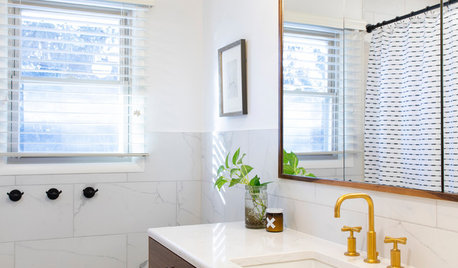
SMALL SPACES5 Solutions to Small-Bathroom Problems
Whether your room lacks a separate shower, adequate storage or a sense of spaciousness, there are remedies at hand
Full Story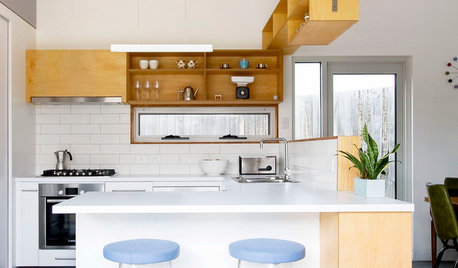
KITCHEN CABINETSA Kitchen Designer’s Top 10 Cabinet Solutions
An expert reveals how her favorite kitchen cabinets on Houzz tackle common storage problems
Full Story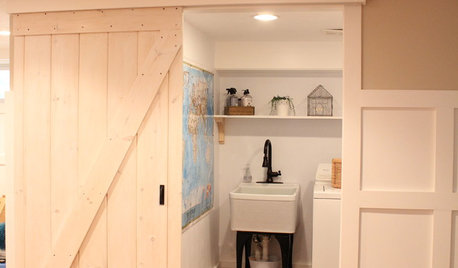
DIY PROJECTSMake Your Own Barn-Style Door — in Any Size You Need
Low ceilings or odd-size doorways are no problem when you fashion a barn door from exterior siding and a closet track
Full Story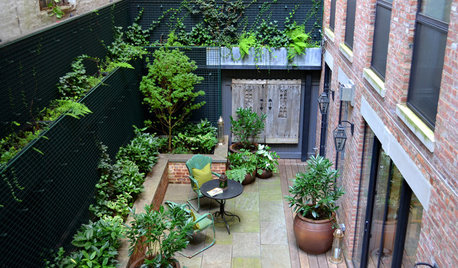
LANDSCAPE DESIGNProblem Solving With the Pros: How to Build a Garden in an Urban Canyon
Skyscrapers, noise and deep shade create an unlikely sweet spot for a timeless green retreat in New York City
Full Story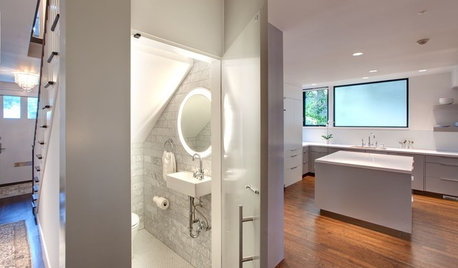
BATHROOM DESIGNLight-Up Mirrors Offer Bright Design Solutions
If you're taking a dim view of a problem bathroom area, try the flash of design brilliance that is the electric mirror
Full Story
VALENTINE’S DAY5 Relationship Problems Solved by Design
Everyday issues driving you and your special someone apart? These design solutions can help mend your together time
Full Story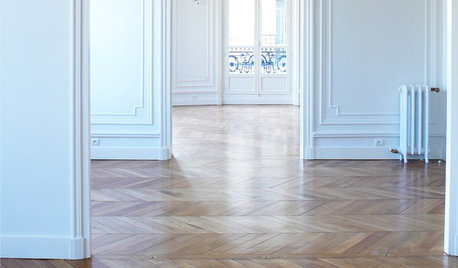
DECORATING GUIDESDesign Solutions for 11 Tricky Spaces
Creative furniture placement, smart storage and sleight of hand turn your home's problem areas into stylish places to enjoy
Full Story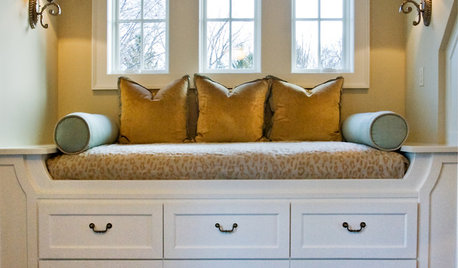
SMALL SPACESDownsizing Help: Storage Solutions for Small Spaces
Look under, over and inside to find places for everything you need to keep
Full Story
KITCHEN DESIGNUltimate Storage Solution for Your Measuring Cups
Tired of losing your measuring cups and spoons? This DIY kitchen-organizing trick will keep them all right at hand
Full Story








SJ McCarthy